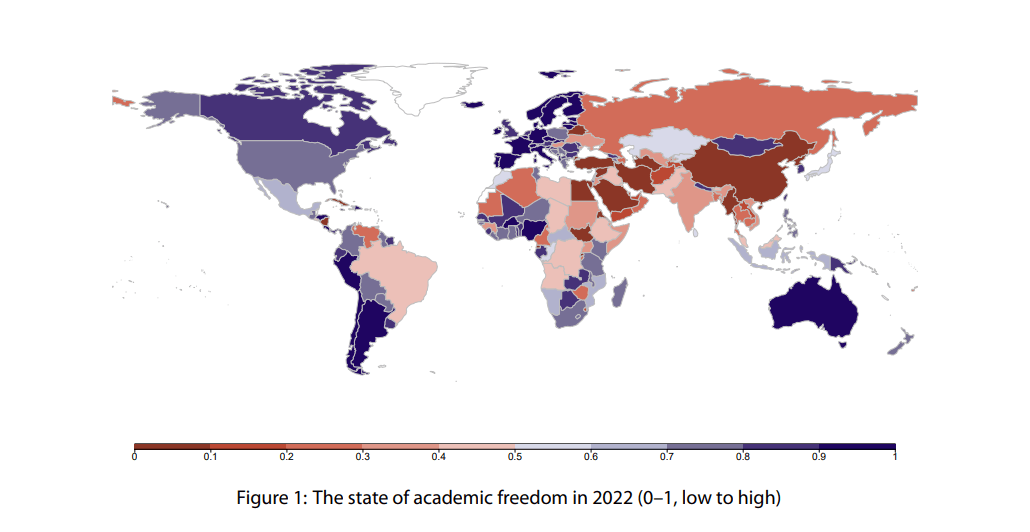Stay in the loop! Subscribe to our mailing list
Early in March, Academic Freedom Index 2023 update was released, assessing the academic freedom on a global scale as of December 2022. According to the report, in 22 countries, academic freedom deteriorated significantly compared to ten years ago, while only in five small countries—corresponding to a mere 0.7% of the world population—there was a positive tendency. Overall, 50% of the world’s population live in political contexts where a general backslide has occurred in terms of academic freedom over the last decade.
According to the 2023 update, among the most populous countries of the world, China, the US, Mexico and India have experienced a significant decline in academic freedom over the last decade, albeit due to different structural and political reasons. Similarly, in Eastern Europe and Central Asia autocratisation and democratic backslide led to a significant decline in academic freedom notably in Poland, Hungary, Russia, and Belarus. However, findings of the report also suggest that liberal democracies were not exempt from a backslide in academic freedom as can be seen in the US and the UK examples.
The Academic Freedom Index (AFI) project is launched in 2017 with an expert consultation in Cologne funded by the Fritz Thyssen Foundation. Later, the first version of the AFI was released in 2020 with the joint efforts of researchers from Friedrich-Alexander-Universität Erlangen-Nürnberg (FAU), the V-Dem Institute, the Scholars at Risk Network, and the Global Public Policy Institute. AFI evaluates de facto levels of academic freedom across the world based on five key indicators: the freedom to research and teach; the freedom of academic exchange and dissemination; the institutional autonomy of universities; campus integrity; the freedom of academic and cultural expression.

High interest and higher budget for the Hilde Domin Programme
Against the background of global decline in academic freedom as outlined above, ACA and its members continue to extend their support for scholars and students at risk. Recently, The German Academic Exchange Service (DAAD) has expanded its “Hilde Domin Programme” for at-risk students and doctoral candidates. The scholarship scheme now funds about 160 early career academics to study or complete their PhDs in Germany. Demand continues to exceed the places available: The DAAD received an average of 20 nominations from higher education and other institutions for each scholarship that was available. The majority of nominations come from the Middle East.
Thanks to the additional funding provided by the Federal Foreign Office, Afghanistan is now the leading country of origin for scholarship holders. Belarus, Myanmar and Syria are also major countries of origin. Men make up 55% of the scholarship holders, while 43% are women and 2% identify as gender non-conforming.
The DAAD offers this programme since April 2021. The programme supports at-risk students and doctoral candidates who have been denied their right to education in their countries of origin by giving them the chance to start or continue a degree course or PhD in Germany.
Read the full AFI 2023 Update here
Read the press release by DAAD